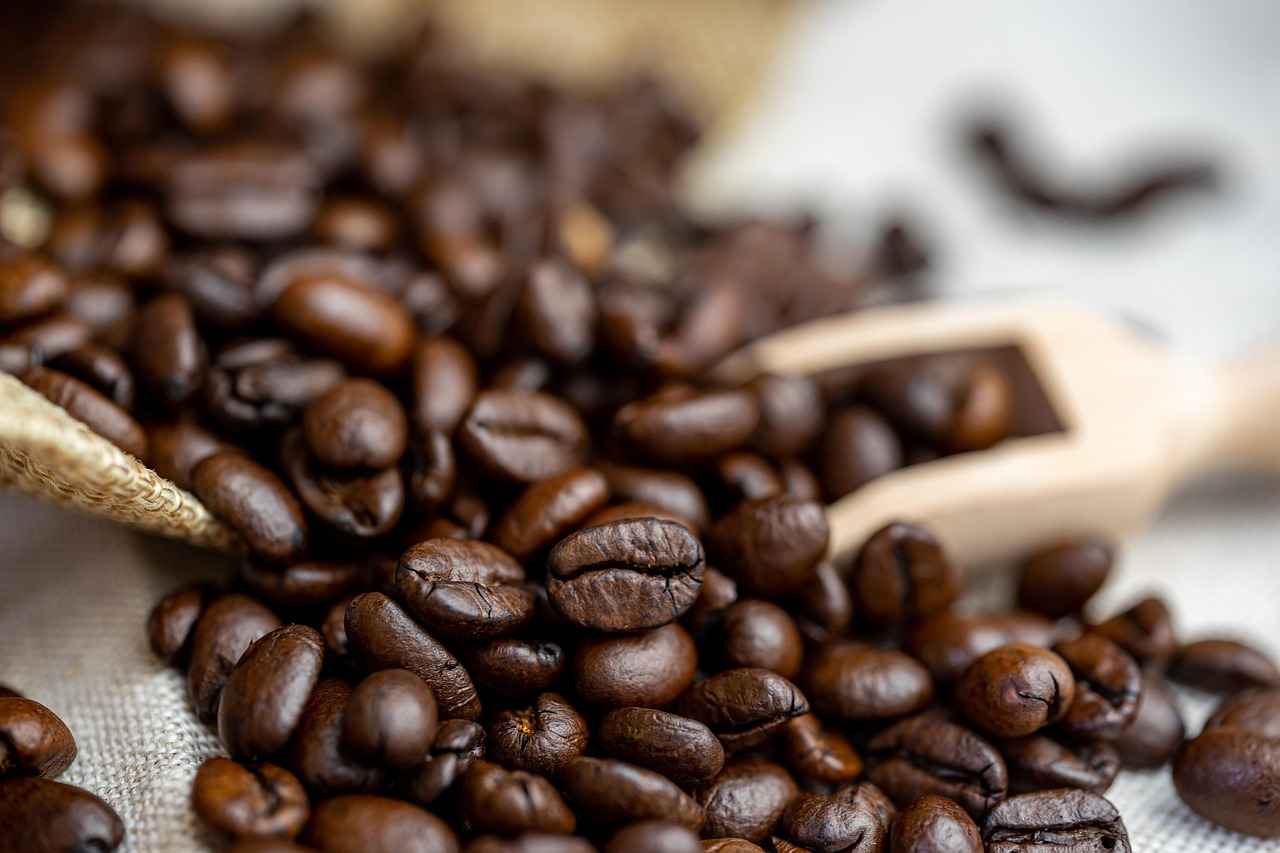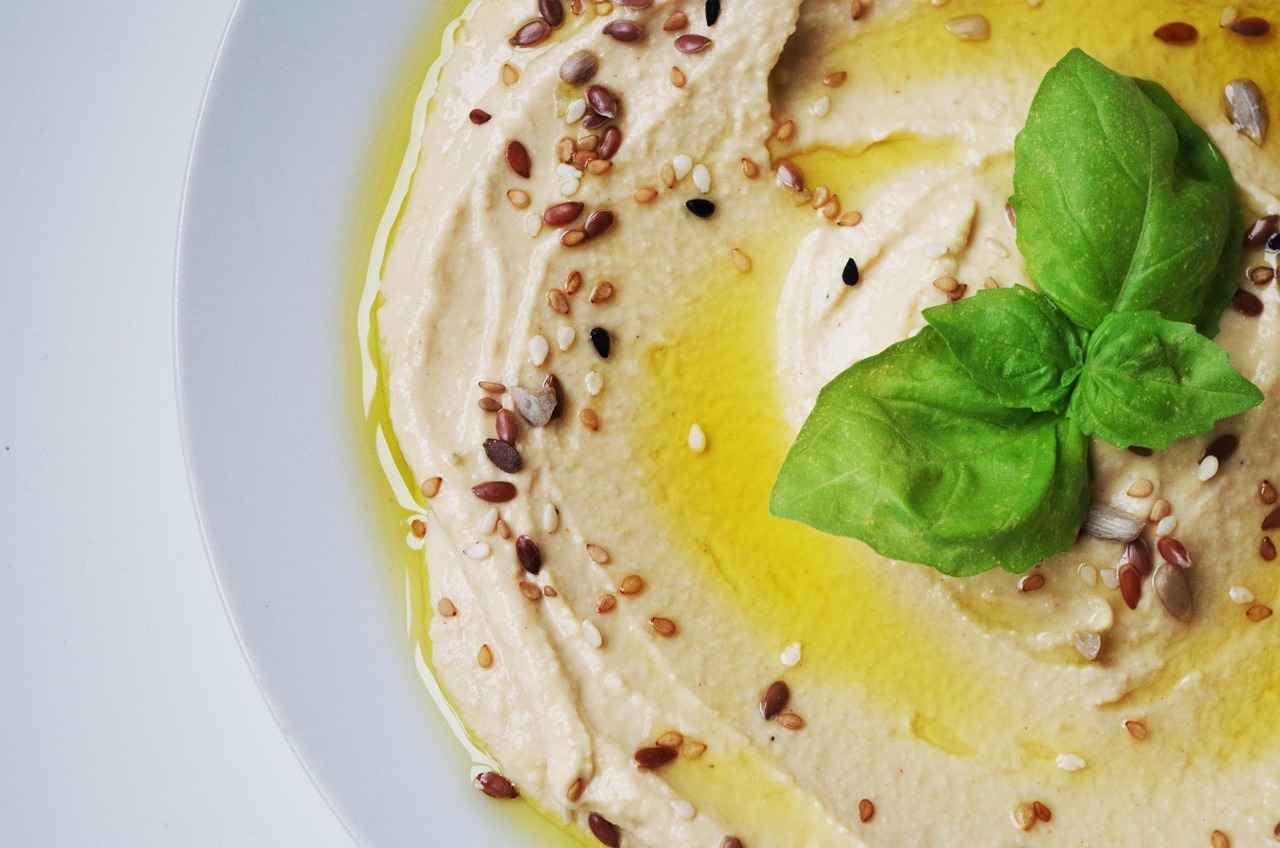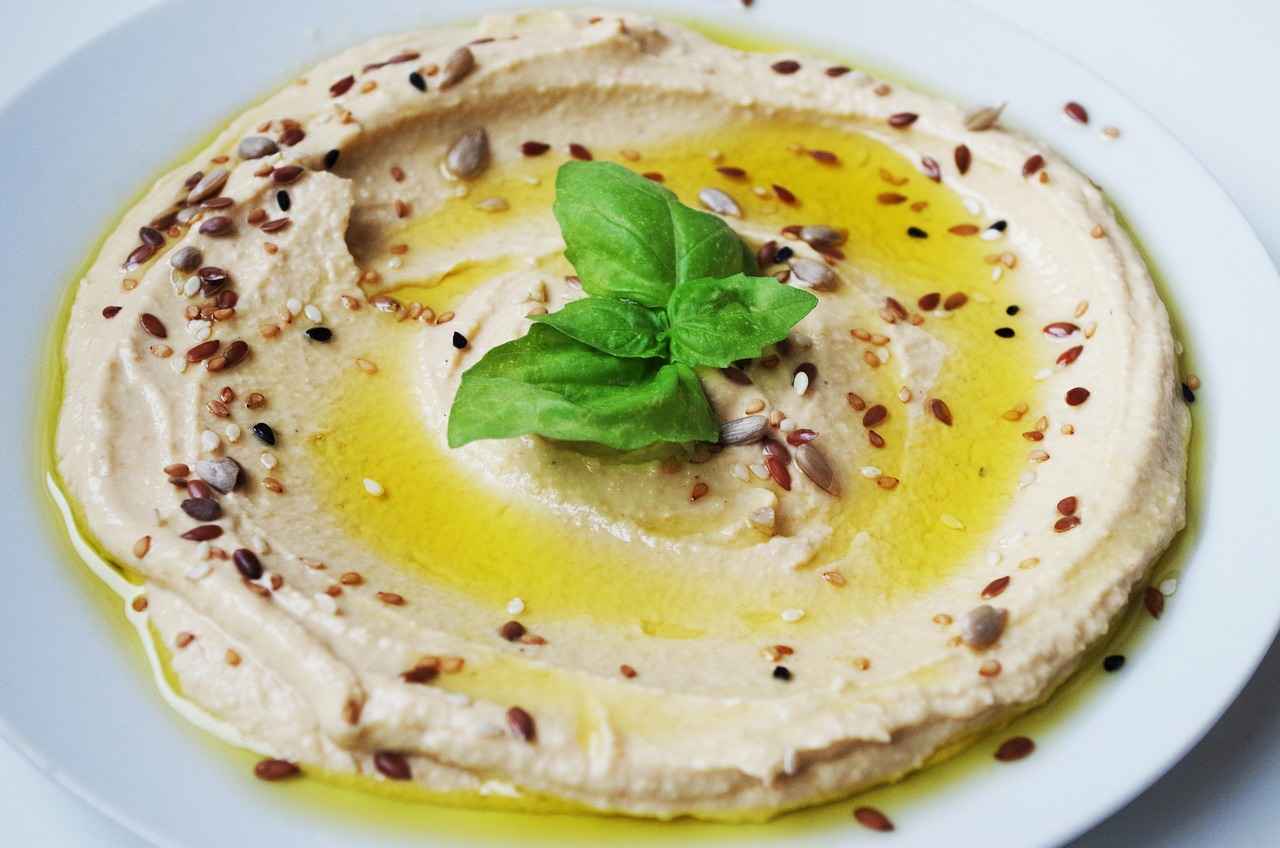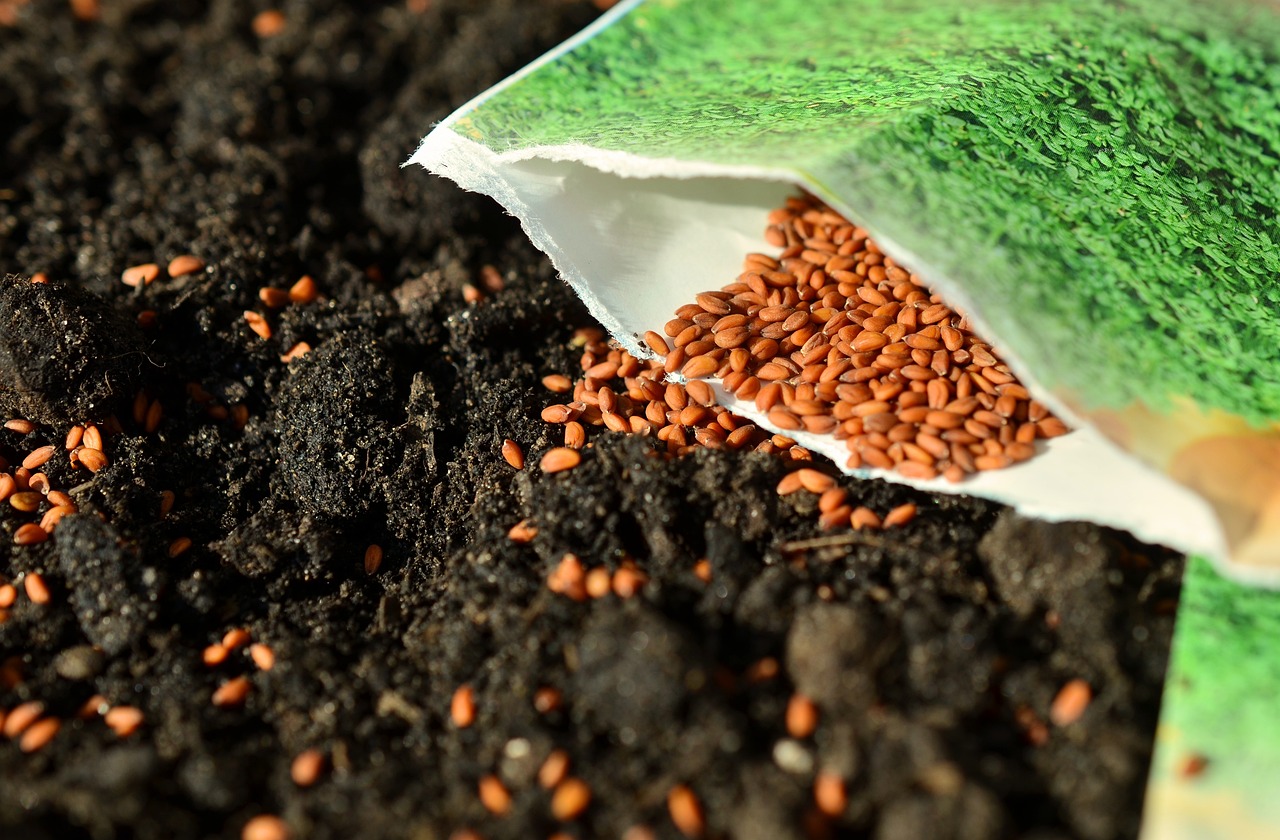Flax seeds and chia seeds have emerged as popular superfoods, often celebrated for their impressive nutritional profiles. This article delves into the nutritional benefits, culinary uses, and health implications of both seeds, aiding you in determining which may be more beneficial for your health.
Flax seeds are small, flat seeds that come in a variety of colors, primarily brown and golden. They are renowned for their high content of omega-3 fatty acids, particularly alpha-linolenic acid (ALA), which is essential for heart health. Additionally, flax seeds are rich in dietary fiber and contain lignans, compounds that have antioxidant properties.
Chia seeds, derived from the Salvia hispanica plant, are tiny black seeds packed with nutrients. They are an excellent source of fiber, providing a significant amount of soluble fiber, which aids in digestion. Chia seeds are also high in protein and contain a wealth of antioxidants, making them a popular choice among health enthusiasts.
Incorporating flax seeds into your diet can offer numerous health benefits. They are known to improve heart health by reducing cholesterol levels and inflammation. The high fiber content promotes digestive health and can help regulate blood sugar levels. Furthermore, some studies suggest that lignans may possess anti-cancer properties, particularly in hormone-related cancers.
Chia seeds are often praised for their ability to support weight loss due to their high fiber content, which helps you feel fuller for longer. They also promote digestive health by acting as a prebiotic, feeding beneficial gut bacteria. Additionally, chia seeds provide a steady release of energy, making them a great option for athletes and active individuals.
When comparing the nutritional profiles of flax seeds and chia seeds, several differences emerge:
| Nutrient | Flax Seeds (per 100g) | Chia Seeds (per 100g) |
|---|---|---|
| Calories | 534 | 486 |
| Protein | 18g | 17g |
| Omega-3 Fatty Acids | 22g | 18g |
| Fiber | 27g | 34g |
This comparison helps consumers make informed choices based on their dietary goals.
Flax seeds can be easily added to various dishes. Try incorporating them into smoothies, oatmeal, or baked goods. Ground flax seeds are particularly versatile, as they blend seamlessly into recipes, enhancing both flavor and nutrition.
Chia seeds can be mixed into smoothies, sprinkled on yogurt, or used to create delicious chia pudding. Their unique ability to absorb liquid makes them perfect for thickening smoothies or creating a gel-like consistency in recipes.
Although flax seeds are generally safe for most individuals, they may cause digestive discomfort in some people, especially when consumed in large quantities. It is advisable to start with small amounts and gradually increase intake.
Chia seeds are typically safe; however, excessive consumption can lead to gastrointestinal issues such as bloating or gas. Moderation is key to enjoying their benefits without adverse effects.
The choice between flax seeds and chia seeds ultimately depends on your individual health goals, dietary preferences, and nutritional needs. Both seeds offer unique benefits, and incorporating a variety of superfoods into your diet can lead to optimal health.

What Are Flax Seeds?
Flax seeds, also known as linseeds, are small, flat seeds that come in two primary varieties: brown and golden. These seeds are packed with essential nutrients and have gained recognition as a superfood due to their impressive health benefits. They are particularly rich in omega-3 fatty acids, which are crucial for heart health, and they also provide a significant amount of dietary fiber and lignans, a type of antioxidant. This unique combination of nutrients makes flax seeds a valuable addition to any diet.
The term superfood is often used to describe foods that offer exceptional nutritional benefits, and flax seeds fit this description perfectly. Their high content of alpha-linolenic acid (ALA), a plant-based omega-3 fatty acid, contributes to cardiovascular health by reducing inflammation and lowering blood pressure. Additionally, the fiber in flax seeds aids in digestive health by promoting regular bowel movements and supporting a healthy gut microbiome.
Flax seeds are incredibly versatile and can be incorporated into various dishes. Here are some popular ways to enjoy them:
- Smoothies: Add a tablespoon of ground flax seeds to your morning smoothie for an extra nutrient boost.
- Baked Goods: Substitute flaxseed meal for a portion of flour in recipes for muffins, pancakes, or bread.
- Salads: Sprinkle whole or ground flax seeds on top of salads for added crunch and nutrition.
- Oatmeal: Stir in flax seeds into oatmeal or yogurt for a hearty breakfast.
Flax seeds offer a myriad of health benefits:
- Heart Health: Regular consumption of flax seeds can help lower cholesterol levels and reduce the risk of heart disease.
- Cancer Prevention: Some studies suggest that lignans in flax seeds may have protective effects against certain types of cancer, particularly breast and prostate cancer.
- Weight Management: The high fiber content can promote a feeling of fullness, which may help with weight control.
- Hormonal Balance: Flax seeds may help balance hormones in women, potentially alleviating symptoms of menopause.
While flax seeds are generally safe for most people, there are a few potential side effects to be aware of:
- Digestive Issues: Some individuals may experience bloating or gas, especially if they consume large amounts.
- Allergic Reactions: Although rare, some people may have an allergy to flax seeds.
- Hormonal Effects: Due to their lignan content, flax seeds may affect hormone levels, so individuals with hormone-sensitive conditions should consult a healthcare provider.
In conclusion, flax seeds are a nutrient-dense food that can enhance overall health when included in a balanced diet. Their versatility in cooking and numerous health benefits make them a valuable addition to your pantry.

What Are Chia Seeds?
Chia seeds, derived from the Salvia hispanica plant, are tiny, black seeds that have captured the attention of health enthusiasts worldwide. These seeds are not only small in size but also packed with a remarkable nutritional profile that makes them a popular addition to various diets.
One of the standout features of chia seeds is their high fiber content. In fact, just one ounce (about 28 grams) of chia seeds contains approximately 11 grams of fiber, which is about 30% of the recommended daily intake for adults. This fiber is primarily soluble, which means it can absorb water and form a gel-like substance in the stomach, promoting feelings of fullness and aiding in weight management.
Additionally, chia seeds are an excellent source of protein. They contain all nine essential amino acids, making them a complete protein source, which is particularly beneficial for vegetarians and vegans. With about 4 grams of protein per ounce, chia seeds can contribute to muscle repair and overall health.
Another significant aspect of chia seeds is their rich antioxidant content. These antioxidants help combat oxidative stress in the body, reducing the risk of chronic diseases such as heart disease and cancer. The presence of antioxidants also contributes to the longevity of chia seeds, allowing them to be stored for extended periods without spoiling.
How Can You Use Chia Seeds? Chia seeds are incredibly versatile and can be easily incorporated into your daily meals. Here are some popular ways to enjoy them:
- Smoothies: Add a tablespoon of chia seeds to your favorite smoothie for an extra nutrient boost.
- Yogurt: Mix chia seeds into yogurt or oatmeal for added texture and nutrition.
- Chia Pudding: Combine chia seeds with almond milk or coconut milk, let it sit overnight, and enjoy a delicious pudding in the morning.
- Baking: Incorporate chia seeds into baked goods like muffins or bread for enhanced fiber and protein content.
What Are the Health Benefits of Chia Seeds? The health benefits of chia seeds extend beyond their nutritional value. Regular consumption may help:
- Support Digestive Health: The high fiber content aids in digestion and promotes regular bowel movements.
- Enhance Heart Health: Omega-3 fatty acids found in chia seeds can help lower cholesterol levels and reduce inflammation.
- Boost Energy Levels: The combination of protein, fiber, and healthy fats provides sustained energy throughout the day.
Despite their numerous benefits, it is essential to consume chia seeds in moderation. Excessive intake may lead to gastrointestinal discomfort, especially if not accompanied by adequate fluid intake. It’s recommended to start with a small amount and gradually increase as your body adjusts.
In summary, chia seeds are a nutrient-dense superfood that can enhance your diet in various ways. Their high fiber, protein, and antioxidant content make them a valuable addition to meals and snacks, supporting overall health and wellness.

Health Benefits of Flax Seeds
Flax seeds are often hailed as a superfood due to their impressive nutritional profile and numerous health benefits. These tiny seeds, derived from the flax plant, are packed with essential nutrients that can contribute significantly to overall health. In this section, we will explore the various health benefits of flax seeds, emphasizing their roles in heart health, digestive support, and even potential anti-cancer properties.
One of the most significant benefits of flax seeds is their ability to promote heart health. Flax seeds are an excellent source of omega-3 fatty acids, particularly alpha-linolenic acid (ALA), which is known to reduce inflammation and improve overall cardiovascular function. Regular consumption of flax seeds has been linked to lower blood pressure and improved cholesterol levels, making them a heart-friendly addition to any diet.
Flax seeds are also a rich source of dietary fiber, which plays a crucial role in maintaining digestive health. The soluble fiber in flax seeds can help regulate bowel movements and prevent constipation. Additionally, the fiber content can aid in the growth of healthy gut bacteria, promoting a balanced digestive system. Incorporating flax seeds into your meals can provide the necessary fiber boost to support digestive wellness.
Another area where flax seeds show promise is in cancer prevention. Research suggests that the lignans found in flax seeds possess antioxidant properties that may help combat cancer cell growth. Some studies indicate that these compounds can reduce the risk of hormone-related cancers, such as breast and prostate cancer. While more research is needed, the potential anti-cancer properties of flax seeds make them a valuable addition to a health-conscious diet.
Adding flax seeds to your diet is simple and versatile. Here are some practical ways to enjoy their health benefits:
- Smoothies: Blend flax seeds into your morning smoothie for an extra nutrient boost.
- Baked Goods: Substitute ground flax seeds for eggs in baking recipes to create vegan-friendly options.
- Salads: Sprinkle whole or ground flax seeds on salads for added crunch and nutrition.
- Oatmeal: Stir flax seeds into your oatmeal for a hearty breakfast.
While flax seeds are generally safe for most people, it is important to consume them in moderation. Some individuals may experience digestive discomfort if they consume large amounts of flax seeds, particularly if they are not used to a high-fiber diet. It is advisable to start with a small amount and gradually increase your intake to allow your digestive system to adjust.
In summary, flax seeds are a nutrient-dense food that offers a variety of health benefits. From promoting heart health to supporting digestion and potentially reducing cancer risk, these tiny seeds can play a significant role in enhancing your overall well-being. By incorporating flax seeds into your daily meals, you can take a proactive step towards a healthier lifestyle.

Health Benefits of Chia Seeds
Chia seeds, derived from the Salvia hispanica plant, have gained immense popularity in recent years due to their remarkable health benefits. These tiny black seeds are a powerhouse of nutrients, making them an excellent addition to a balanced diet. Let’s explore the various health benefits they offer.
- Weight Loss Support: Chia seeds are known for their high fiber content, which can promote a feeling of fullness. This can help reduce overall calorie intake, making them a valuable ally in weight management.
- Enhanced Digestive Health: The soluble fiber in chia seeds absorbs water, forming a gel-like substance in the stomach. This not only aids in digestion but also supports regular bowel movements, helping to prevent constipation.
- Sustained Energy Release: Chia seeds are rich in complex carbohydrates, which provide a steady release of energy. This makes them an ideal snack for athletes and those with active lifestyles, as they help maintain energy levels throughout the day.
- Rich in Antioxidants: These seeds are packed with antioxidants that combat oxidative stress in the body. This is essential for reducing inflammation and lowering the risk of chronic diseases.
- Omega-3 Fatty Acids: Chia seeds are one of the best plant-based sources of omega-3 fatty acids, which are crucial for heart health. They help lower cholesterol levels and reduce the risk of heart disease.
- Bone Health: Chia seeds are also an excellent source of calcium, magnesium, and phosphorus, all of which are vital for maintaining strong bones and teeth.
- Blood Sugar Regulation: The high fiber content in chia seeds can help stabilize blood sugar levels. This is particularly beneficial for individuals with diabetes, as it may help prevent spikes in blood glucose.
Incorporating chia seeds into your diet is simple. They can be sprinkled on salads, blended into smoothies, or used to create delicious chia puddings. The versatility of these seeds makes them easy to add to various recipes, enhancing both flavor and nutritional value.
However, it’s important to consume chia seeds in moderation. While they are generally safe, excessive intake may lead to digestive issues due to their high fiber content. A typical serving size is about 1-2 tablespoons, which provides ample health benefits without overwhelming your digestive system.
In summary, chia seeds are a nutritional powerhouse that can support weight loss, enhance digestive health, and provide sustained energy. Their unique properties make them appealing for a variety of dietary needs, making them a worthy addition to your health regimen.

Flax Seeds vs Chia Seeds: Nutritional Comparison
When it comes to choosing between flax seeds and chia seeds, understanding their nutritional profiles is essential for making informed dietary choices. Both seeds are celebrated for their health benefits, but they offer distinct advantages that cater to different nutritional needs.
Fiber is crucial for digestive health, and both flax and chia seeds are excellent sources. Flax seeds contain approximately 27 grams of fiber per 100 grams, while chia seeds provide about 34 grams of fiber in the same quantity. This makes chia seeds a superior option for those looking to increase their fiber intake. The soluble fiber in chia seeds can absorb water, forming a gel-like substance that aids in digestion and promotes a feeling of fullness.
Both seeds are rich in omega-3 fatty acids, which are essential for heart health. Flax seeds are particularly high in alpha-linolenic acid (ALA), containing around 22 grams per 100 grams. Chia seeds also provide a good amount, with about 17 grams per 100 grams. However, the higher omega-3 content in flax seeds makes them a better choice for those specifically seeking to boost their intake of these beneficial fats.
Protein is vital for muscle repair and growth. Flax seeds offer about 18 grams of protein per 100 grams, while chia seeds provide approximately 17 grams. Although the difference is minimal, flax seeds slightly edge out chia seeds in protein content. For individuals looking to enhance their muscle recovery post-exercise, incorporating flax seeds may be beneficial.
In addition to fiber, omega-3s, and protein, both seeds are rich in essential vitamins and minerals. Flax seeds are an excellent source of magnesium, phosphorus, and vitamin B1, while chia seeds are high in calcium, manganese, and phosphorus. This diverse range of nutrients makes both seeds valuable additions to a balanced diet.
Flax seeds are known for their high levels of lignans, which possess antioxidant properties that may help reduce the risk of certain cancers. Chia seeds, on the other hand, are rich in antioxidants that combat oxidative stress and inflammation. Including both seeds in your diet can provide a synergistic effect, enhancing your overall health.
- Add flax seeds to smoothies, oatmeal, or baked goods for a nutritional boost.
- Incorporate chia seeds into yogurt, salads, or make chia pudding for a healthy snack.
- Both seeds can be sprinkled on top of meals or blended into dressings for added texture and nutrition.
In conclusion, while both flax seeds and chia seeds offer unique health benefits, their differences in fiber content, omega-3 fatty acids, and protein levels can help consumers make informed choices based on their dietary goals. Whether you choose one over the other or incorporate both into your diet, you are sure to reap the myriad health benefits they provide.

How to Incorporate Flax Seeds into Your Diet?
Incorporating flax seeds into your diet can be both simple and delicious. These tiny seeds are not only packed with nutrients but also versatile enough to enhance various meals. Here are some creative ways to enjoy their health benefits:
- Smoothies: Adding a tablespoon of ground flax seeds to your morning smoothie can boost its nutritional profile. They blend well with fruits like bananas and berries, providing a nutty flavor and thickening texture.
- Baked Goods: Flax seeds can be incorporated into your baking recipes. Whether you’re making muffins, bread, or pancakes, simply substitute a portion of the flour with ground flax seeds. This not only adds fiber but also enhances the omega-3 fatty acid content.
- Salads: Sprinkling whole or ground flax seeds over salads adds a delightful crunch. They pair well with leafy greens, nuts, and vinaigrettes, making your salad more nutritious and filling.
- Oatmeal: Stirring flax seeds into your morning oatmeal or overnight oats is another easy way to incorporate them. They add a rich texture and can be combined with fruits, honey, or yogurt for added flavor.
- Soups and Stews: Add ground flax seeds to soups and stews as a thickening agent. This not only enriches the dish but also provides a healthy dose of nutrients without altering the flavor significantly.
- Energy Bars: Homemade energy bars or granola can benefit from the addition of flax seeds. Their binding properties help hold the bars together while boosting their health benefits.
When using flax seeds, it’s essential to consider their preparation. Ground flax seeds are more easily digestible than whole seeds, allowing your body to absorb their nutrients more effectively. You can purchase pre-ground flax seeds or grind them yourself using a coffee grinder or blender.
Additionally, it’s advisable to store flax seeds in a cool, dark place, preferably in an airtight container, to maintain their freshness and prevent them from becoming rancid.
For those who are new to flax seeds, starting with small amounts is recommended. Gradually increase your intake to allow your digestive system to adjust. Aim for about 1 to 2 tablespoons per day to reap the maximum health benefits.
In summary, adding flax seeds to your diet is not only beneficial for your health but also easy to implement. With their numerous applications in various meals, you can enjoy their nutritional advantages while enhancing the flavor and texture of your favorite dishes.

How to Incorporate Chia Seeds into Your Diet?
Chia seeds have become a popular addition to many diets, thanks to their impressive nutritional profile and versatility. This tiny seed is not only packed with essential nutrients but also offers a variety of ways to include it in your meals. Here are some creative and effective methods to incorporate chia seeds into your daily diet.
Chia seeds, derived from the Salvia hispanica plant, are tiny black seeds that have gained recognition for their health benefits. They are an excellent source of omega-3 fatty acids, fiber, protein, and antioxidants, making them a fantastic addition to a balanced diet.
- Boost Nutritional Value: Add a tablespoon of chia seeds to your favorite smoothie. They not only enhance the nutrient content but also create a creamy texture.
- Hydration Benefits: Let the chia seeds soak in the smoothie for a few minutes before blending. This allows them to absorb liquid, providing a hydrating effect.
- Flavorful Toppings: Sprinkle chia seeds on top of yogurt along with fruits and nuts for a delicious breakfast or snack.
- Chia Yogurt Parfait: Layer yogurt, chia seeds, and your choice of fruits in a glass for a visually appealing and nutritious parfait.
Chia pudding is a popular and easy-to-make dish that serves as a great breakfast or dessert option:
1. Combine 1/4 cup of chia seeds with 1 cup of your favorite milk (dairy or plant-based).2. Add sweeteners like honey or maple syrup and flavorings such as vanilla or cocoa powder.3. Stir well and let it sit in the refrigerator for at least 2 hours or overnight.4. Top with fruits, nuts, or granola before serving.
- Egg Substitute: Use chia seeds as a vegan egg replacement by mixing 1 tablespoon of chia seeds with 2.5 tablespoons of water. Let it sit until it forms a gel-like consistency.
- Healthier Baked Goods: Add chia seeds to muffins, bread, or pancakes for an extra boost of fiber and nutrients.
Chia seeds can also be added to beverages:
- Refreshing Drinks: Mix chia seeds into water, juice, or herbal teas. Let them sit for a few minutes to absorb the liquid and create a unique texture.
- Detox Smoothies: Combine chia seeds with detoxifying ingredients like lemon, ginger, and green vegetables for a health-boosting drink.
Creating your own energy bars with chia seeds can be a nutritious snack option:
1. Blend oats, nuts, dried fruits, and chia seeds together.2. Press the mixture into a baking dish and refrigerate until firm.3. Cut into bars for a convenient on-the-go snack.
In summary, incorporating chia seeds into your diet can be simple and enjoyable. Their versatility allows for a range of culinary applications, from smoothies to baked goods. By experimenting with different recipes and methods, you can easily reap the numerous health benefits that chia seeds offer, making them a valuable addition to a balanced diet.

Potential Side Effects of Flax Seeds
Flax seeds have gained popularity as a nutritional powerhouse, packed with omega-3 fatty acids, fiber, and lignans. While they offer numerous health benefits, it is important to be aware of their potential side effects, especially for those who may be sensitive to certain foods. Understanding these side effects can help individuals incorporate flax seeds into their diets wisely and safely.
While flax seeds are generally considered safe for most people, some may experience digestive discomfort. This can manifest as bloating, gas, or even diarrhea, particularly when consumed in large quantities. The high fiber content in flax seeds can be beneficial for digestion, but for those not accustomed to a high-fiber diet, a sudden increase in fiber intake can lead to gastrointestinal issues.
Individuals with irritable bowel syndrome (IBS) or other digestive disorders may be more susceptible to the side effects of flax seeds. Additionally, those who consume flax seeds without adequate hydration may also experience discomfort. It is crucial to drink plenty of water when incorporating flax seeds into your diet to help mitigate these effects.
- Start Slowly: If you are new to flax seeds, begin with a small amount, such as one teaspoon per day, and gradually increase your intake.
- Stay Hydrated: Drinking plenty of water can help your digestive system process the added fiber.
- Consider Ground Flax Seeds: Ground flax seeds are often easier to digest than whole seeds, making them a better option for those with sensitive stomachs.
Though rare, some individuals may experience allergic reactions to flax seeds. Symptoms can include itching, swelling, or difficulty breathing. If you suspect you have an allergy, it is important to consult a healthcare professional for guidance.
Flax seeds may interact with certain medications, particularly those that affect blood clotting. The omega-3 fatty acids in flax seeds can have a blood-thinning effect, which may enhance the effects of anticoagulant medications. If you are on medication, consult your doctor before adding flax seeds to your diet.
In summary, while flax seeds are generally safe and offer numerous health benefits, it is essential to be mindful of potential side effects. By understanding how to incorporate them into your diet gradually and being aware of any personal sensitivities, you can enjoy the advantages of this nutrient-rich superfood without experiencing discomfort. Always consult with a healthcare provider if you have concerns or underlying health conditions that may affect your ability to consume flax seeds safely.

Potential Side Effects of Chia Seeds
Chia seeds have gained immense popularity as a nutritional powerhouse in recent years, thanks to their impressive health benefits. However, like any food, they come with potential side effects that consumers should be aware of. Understanding these effects can help you use chia seeds wisely and enjoy their benefits without discomfort.
While chia seeds are generally considered safe for most people, excessive consumption may lead to a range of gastrointestinal issues. Some common side effects include:
- Bloating: Due to their high fiber content, consuming too many chia seeds can lead to bloating and discomfort.
- Gas: Increased fiber intake can also cause gas, particularly if your body is not used to a high-fiber diet.
- Diarrhea: Overconsumption may result in diarrhea, especially if chia seeds are not adequately hydrated before consumption.
To maximize the benefits of chia seeds while minimizing the risk of side effects, it is essential to know the recommended daily intake. Most health experts suggest starting with 1 to 2 tablespoons per day. This amount allows your body to adjust to the increased fiber intake without overwhelming your digestive system.
Chia seeds can absorb up to 12 times their weight in water, which is one reason why they are so effective in promoting a feeling of fullness. However, this property also means that it is crucial to consume chia seeds with enough liquid. If you eat them dry, they can expand in your stomach, leading to discomfort. Always soak chia seeds in water, smoothies, or yogurt before consuming them to prevent digestive issues.
While chia seeds are safe for most individuals, certain people may need to exercise caution:
- Those with digestive disorders: Individuals with conditions such as irritable bowel syndrome (IBS) or inflammatory bowel disease (IBD) may experience exacerbated symptoms due to high fiber intake.
- Pregnant women: Although chia seeds can be beneficial, pregnant women should consult with a healthcare provider before adding them to their diet, particularly in large amounts.
- Individuals on blood thinners: Chia seeds are high in omega-3 fatty acids, which can affect blood clotting. If you are on anticoagulant medications, consult with your doctor.
Allergic reactions to chia seeds are rare but can occur. Symptoms may include itching, rash, or gastrointestinal discomfort. If you suspect an allergy, discontinue use and consult a healthcare professional.
Chia seeds are a versatile and nutritious addition to your diet, offering numerous health benefits. However, it is essential to consume them in moderation and pay attention to how your body reacts. By understanding the potential side effects and adhering to recommended intake guidelines, you can enjoy the advantages of chia seeds while minimizing any adverse effects.

Which Superfood Should You Choose?
When it comes to enhancing your diet with superfoods, the decision between flax seeds and chia seeds can be quite challenging. Each of these seeds boasts a unique set of nutritional benefits and can contribute significantly to your overall health. However, the choice ultimately hinges on your specific health goals, dietary preferences, and nutritional requirements.
- Weight Management: If your aim is to manage weight, chia seeds may be more beneficial due to their high fiber content, which promotes satiety.
- Heart Health: Flax seeds are rich in omega-3 fatty acids, which are essential for maintaining cardiovascular health.
- Digestive Health: Both seeds offer dietary fiber, but chia seeds form a gel-like substance when mixed with water, aiding digestion.
Your dietary preferences also play a crucial role in this decision. For instance, if you are following a vegan or vegetarian diet, both flax and chia seeds can be excellent sources of plant-based omega-3 fatty acids. However, if you prefer a nutty flavor, flax seeds might be more appealing to you.
Understanding your nutritional needs is vital. Flax seeds provide a good amount of lignans, which have antioxidant properties, while chia seeds are packed with protein and calcium. If you’re looking for a protein boost, chia seeds may be the better choice.
To make an informed decision, consider keeping a food diary for a week. Track how you feel after incorporating either flax or chia seeds into your meals. This practice can help you identify which seed aligns better with your body’s responses and dietary preferences.
If you’re still uncertain, consulting with a healthcare professional or a registered dietitian can provide personalized recommendations based on your health history and dietary needs. They can guide you in making a choice that supports your wellness journey.
Ultimately, the choice between flax seeds and chia seeds should be tailored to your individual lifestyle and health objectives. Both seeds offer unique benefits, and incorporating a variety of superfoods can enhance your overall nutrition. Whether you choose flax seeds for their heart-healthy properties or chia seeds for their fiber content, understanding your personal needs is essential for making the right decision.
In conclusion, by analyzing your health goals, dietary preferences, and nutritional requirements, you can make a more informed and personalized decision on whether flax seeds or chia seeds are the best superfood for you.
Frequently Asked Questions
- What are the primary differences between flax seeds and chia seeds?
Flax seeds are rich in omega-3 fatty acids and lignans, while chia seeds are packed with fiber, protein, and antioxidants. Each has unique health benefits that cater to different dietary needs.
- How can I add flax seeds to my diet?
You can sprinkle flax seeds on your morning cereal, blend them into smoothies, or incorporate them into baked goods like muffins and bread for an extra nutritional boost.
- Are there any side effects of consuming chia seeds?
While chia seeds are generally safe, consuming them in excessive amounts can lead to gastrointestinal discomfort. It’s best to start with a small serving and gradually increase your intake.
- Which superfood is better for weight loss?
Chia seeds may be more beneficial for weight loss due to their high fiber content, which helps you feel full longer. However, flax seeds also support weight management through their healthy fats.
- Can I use flaxseed oil instead of whole flax seeds?
Yes, flaxseed oil is a great alternative, especially for obtaining omega-3 fatty acids. However, it lacks the fiber found in whole flax seeds, so consider your dietary needs before choosing.












